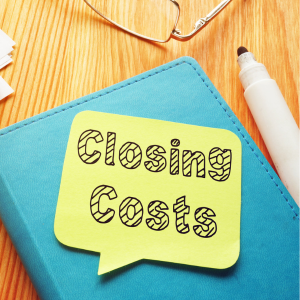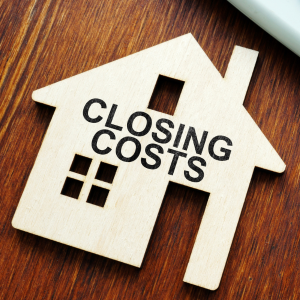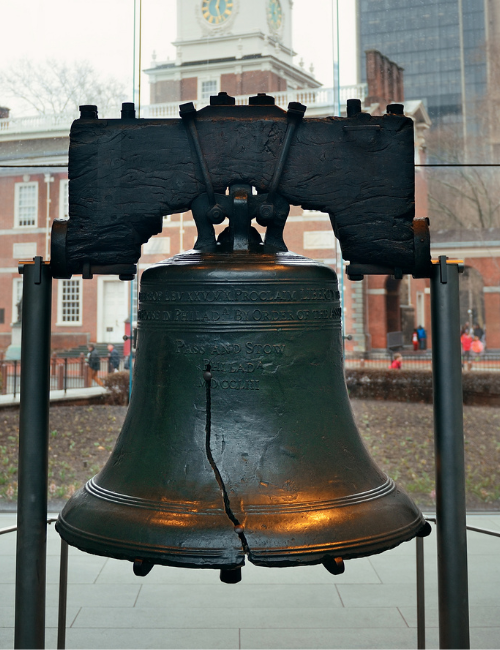
Selling your home in Philadelphia, PA? Understanding your closing costs is key to a smooth and successful sale. Nura Home Buyers is here to guide you through the process, helping you anticipate expenses and make informed decisions every step of the way.
Understanding Closing Costs for Home Sellers in Philadelphia, PA
When selling a home in Philadelphia, Pennsylvania, sellers must understand the numerous closing charges that may apply. Closing costs are expenses that both buyers and sellers must bear at the end of a real estate transaction.
In Philadelphia, prices may include transfer taxes, title insurance, attorney fees, and other administrative charges. Typically, the seller is responsible for paying the city and state transfer taxes, which are substantial components of Pennsylvania closing costs.
Sellers may be required to pay prorated property taxes up to the sale date, as well as any outstanding liens or mortgage obligations. Understanding these financial duties allows sellers to budget properly and avoid surprises at closing.
While certain closing costs can be discussed between the buyer and seller, many fees are customary and non-negotiable in Pennsylvania. Being aware of these expenditures leads to a smoother transaction when selling a property in Philadelphia.
The Impact of Market Conditions on Closing Costs in Philly

In Philadelphia, market circumstances can significantly affect closing costs for house sales. When the real estate market in Philadelphia is competitive, with high demand and limited availability, sellers may have more bargaining power to determine who pays for various closing fees.
In a seller’s market, buyers may be more willing to bear a greater share of the costs in order to make their offers more appealing. In contrast, in a buyer’s market, where there are more homes available than prospective buyers, sellers may need to be more accommodating by covering a larger portion of closing costs to entice buyers.
These dynamics can be influenced by various factors, including interest rates, local home inventories, and overall economic conditions. Furthermore, typical practices in Philadelphia can set certain expectations for how closing fees are split between buyer and seller.
To properly negotiate and allocate closing expenses in the Philadelphia real estate market, both parties must understand current market conditions.
Negotiating Closing Costs: Tips for Philadelphia Home Sellers
In Philadelphia, PA, the financial outcome of selling a home can be substantially influenced by the determination of who is responsible for closing costs. Buyers and sellers typically share the responsibility for closing costs; however, sellers frequently assume responsibility for specified fees, including transfer taxes and the real estate professional commission.
Nevertheless, Philadelphia home vendors who are astute can negotiate these costs in order to reduce their expenditures. In exchange for a higher sale price or other advantageous terms, you may propose to cover a portion of the buyer’s closing costs during negotiations.
In order to negotiate effectively with prospective purchasers, it is essential to evaluate all associated fees, such as settlement charges and title insurance. Consulting with a real estate professional who is well-versed in the market trends of Philadelphia can offer valuable insights into what is typically done and assist in identifying areas where there may be space for negotiation.
By actively participating in the negotiation process, Philadelphia home vendors can effectively manage their closing cost responsibilities and maximize their net proceeds from the sale.
Avoiding Common Pitfalls That Increase Seller Closing Fees

When selling a house in Philadelphia, Pennsylvania, it is critical to understand how to avoid typical errors that might raise seller closing costs. One of the most common ways for sellers to mistakenly increase their closing costs is by failing to agree on who will bear specific costs, such as title insurance and transfer taxes.
In Philadelphia, the real estate market frequently views these fees as negotiable between buyer and seller. Sellers should also be aware of any unforeseen repairs or maintenance issues that develop during the buyer’s inspection period, which could result in additional costs if not addressed immediately.
Another typical mistake is failing to read the fine print in contracts with real estate professionals; commission rates and additional service fees can have a major impact on overall closing costs if not clearly understood from the beginning. Furthermore, sellers should keep all paperwork and financial obligations pertaining to homeowners’ associations up to date to avoid last-minute surprises that could delay the closing process and incur extra costs.
Sellers in Philadelphia can better manage closing costs and avoid financial setbacks by remaining educated and proactive throughout the transaction process.
How Closing Costs Affect Your Home Selling Profits
When selling a house in Philadelphia, PA, it is critical to understand who is responsible for closing fees, as these expenses can greatly impact your ultimate earnings from the transaction. Closing costs often include fees such as title insurance, transfer taxes, and settlement charges, which are typically borne by the seller in Philadelphia.
These expenses can add up to a significant sum, often ranging from 2% to 5% of the home’s sale price. As a vendor, you must consider these expenses when computing your net proceeds.
Failure to appropriately estimate closing costs may result in surprises at settlement and a decrease in your estimated profit margin. By thoroughly assessing these financial commitments ahead of time, sellers can better manage their price and negotiation strategies, maximizing profits while assuring a smoother transaction process. Apart from these expenses, sellers should also consider capital gains tax after selling a home in Pennsylvania to estimate true profits.
Closing costs, such as expert fees and escrow charges, reduce your net profit. When you sell your home for cash in Philadelphia and other cities, factor these costs into your pricing and plans.
Comparing Buyer and Seller Responsibilities at Closing Tables

In the Philadelphia real estate market, both buyers and sellers must understand who is responsible for closing fees. Sellers often pay for a variety of charges at the closing table, including the real estate professional’s commission, which is typically between 5-6% of the home’s sale price, as well as any outstanding property taxes or liens.
Sellers may also be required to pay transfer taxes, which are significantly higher in Philadelphia than in many other places. Buyers usually cover expenditures such as loan origination fees, appraisal fees, and title insurance.
Buyers may also be responsible for inspection and recording expenses required to complete their mortgage. While these roles may change depending on unique talks or special stipulations within the purchase contract, recognizing these standard tasks assists both parties in financially preparing for their obligations at the Philadelphia closing table.
Understanding Escrow Accounts and Their Role in Closings
Comprehending escrow accounts and their significance in the closing process is crucial for both buyers and sellers when selling a home in Philadelphia, PA. An escrow account serves as a neutral repository for funds, ensuring that all terms of the real estate transaction are fulfilled prior to the finalization of the sale.
In Philadelphia, closing costs may encompass several fees, including title insurance, transfer taxes, and attorney fees, typically disbursed from escrow funds. Generally, the purchaser deposits earnest money into this account to signify their commitment to acquiring the property.
The seller may also provide monies if repairs or contingencies require resolution prior to closing. During the closing process, the escrow expert ensures that all financial obligations are satisfied by coordinating payments for these costs from the escrow account.
Comprehending the mechanics of escrow accounts enables both parties to manage closing costs efficiently and facilitates a seamless transfer of ownership during the sale of a home in Philadelphia.
The Role of Title Insurance in Philadelphia Property Sales
The importance of title insurance in Philadelphia’s property transactions is imperative for both buyers and sellers, particularly in terms of closing costs. Title insurance safeguards against potential legal disputes or claims that may result from past ownership issues, such as liens or encumbrances on the property.
In Philadelphia, the buyer is typically responsible for the owner’s title insurance policy as part of their closing costs during a real estate transaction, although this can be negotiated between the parties. The seller typically resolves any extant title issues prior to closing, which may entail the settlement of outstanding debts associated with the property. This ensures that the title is clear.
This process guarantees that the new proprietor will possess a clear and uncontested title upon the completion of the transaction. In Pennsylvania, title insurance significantly mitigates the risks associated with property transactions and enables the smoother completion of transactions by ensuring that all parties are safeguarded from unforeseen complications related to prior ownership claims.
Legal and Administrative Costs in Philadelphia Home Closings
If you want to sell a house in Philadelphia, PA, you need to know who is responsible for the law and paperwork costs during the closing. Some closing costs, like title insurance fees, transfer taxes, and settlement fees, are usually paid for by the seller.
Title insurance covers the buyer and lender in case of a dispute over who owns the property. The state of Pennsylvania and the city of Philadelphia charge transfer taxes on the sale price of the property. Sellers may also have to pay for a real estate lawyer or settlement expert to handle the legal paperwork and make sure that all of the papers are in order with the rules in their area.
Other costs that might come up are recording fees, which are paid to local government offices to make the deal official. If sellers in Philadelphia know about these prices, they can make better budgets and avoid unexpected financial problems during the home-selling process.
Does the Seller Pay Closing Costs in PA?
It’s important to know who pays the closing costs when you sell a house in Philadelphia, PA. It is usually the buyer and the seller in Pennsylvania who pay for the closing costs. Each party pays for its own portion of the costs.
Philadelphia sellers will have to pay a number of closing costs, such as real estate professional fees, transfer taxes, and property taxes that are based on how much the home is worth. Also, sellers may have to pay fees to clear up any liens or mortgages that are already on the land.
When people buy a house, they usually pay for things like title insurance and loan origination fees. But when people in Philadelphia want to sell their home, they should set aside money for their closing costs. Knowing about these financial responsibilities can help speed up the selling process and keep the closing from being a surprise.
In Pennsylvania, sellers usually pay the most closing costs. At Nura Home Buyers, we buy houses in Pittsburgh and nearby areas, and we often cover these fees to simplify the sale.
Which of the Following Costs Are Sellers Responsible for Paying at Closing?
When selling a house in Philadelphia, PA, it’s important for sellers to know what closing fees they are responsible for. In general, sellers are responsible for paying for a few important things throughout the closing process. The commission for the real estate professional is one of the biggest fees. It is normally 5–6% of the sale price of the home and is split between the buyer’s and seller’s experts. Sellers also have to pay transfer taxes, which are much higher in Philadelphia than in many other places. These taxes usually add up to about
14% of the price of the sale. Also, sellers may have to pay any unpaid property taxes up to the closing date, as well as any prorated homeowner association dues if they apply. Sellers often pay for title insurance premiums as well, which safeguards against future claims or problems with the property’s title. Buyers usually pay some of the closing costs themselves, but knowing what the seller is responsible for makes the transaction go more smoothly and helps avoid any unexpected charges at closing time.
At closing, sellers usually pay expert commissions, title insurance for the buyer, property taxes, and any HOA fees. They may also cover agreed-upon repairs and part of the escrow or attorney fees. For details, Contact Us at Nura Home Buyers.
What Part of Closing Costs Does the Buyer Pay?
When someone buys a house in Philadelphia, PA, they usually have to pay a lot of the closing costs. Loan origination fees, assessment fees, credit report fees, and title insurance are some of these costs.
A home inspection and any escrow deposits needed by the lender are also usually paid for by the buyer. Transfer taxes are usually paid for by the buyer in Pennsylvania, but this can sometimes be worked out with the seller.
When planning their budgets, people who want to buy a home need to know about these costs. The Philadelphia real estate market works best when sellers know what portion of the closing costs they need to pay. This makes the process go more smoothly.
Need to sell your home quickly and easily? Nura Home Buyers offers fair cash offers, buys houses as-is, and takes care of all the details with no commissions or headaches. Call us today at (610) 550-8365 for a free, no-obligation offer.
| PROPERTIES | REALTORS | MORTGAGE LOAN | MORTGAGING | HOMEBUYING | INSURERS |
| TITLE COMPANY | LENDING | COMPANY | COMPANIES | CASH | INFORMATION |
| ESCROWS | HOME INSURANCE | HOMEOWNER’S INSURANCE | HOMEOWNERS INSURANCE | DOWN PAYMENT | CALCULATOR |
| REALTY | HOME APPRAISAL | HOMEOWNERSHIP | HOMEOWNERS ASSOCIATION | HOA | BROKERAGE |
| BROKERS | INCENTIVES | HOMELIGHT | EQUITY | DATA | LEGALLY BINDING |
| AMERICA | U.S. | REBATES | FSBO | FOR SALE BY OWNER | FLAT FEE |
| CREDIT SCORE | UNDERWRITING | TITLE SEARCH | OPTION | THE NATIONAL ASSOCIATION OF REALTORS | NAR |
| INTREST | GOAL | DEED | CONSUMERS | CONDOS | TERMITE |
| PITTSBURGH | CITY OF PITTSBURGH | OUT OF POCKET | MORTGAGE ORIGINATION | INVESTORS | INTREST RATES |
| INCOME | EXPERT | CREDIT CARD | CONTINGENCY | CONSTRUCTION | CONFIDENCE |
| BANK | BANKING | BUYERS CLOSING COSTS | PAYS CLOSING COSTS | YOUR CLOSING COSTS | SELLERS CLOSING COSTS |
| CLOSING COSTS YOU | ARE CLOSING COSTS | THE PURCHASE PRICE | YOUR REAL ESTATE | COSTS YOU CAN | THE BUYERS CLOSING COSTS |
| WHO PAYS CLOSING COSTS | MUCH ARE CLOSING COSTS | CLOSING COSTS FOR SELLERS | THE HOMES SALE PRICE | OF THE HOMES SALE | ARE CLOSING COSTS IN |
| YOUR REAL ESTATE AGENT | CLOSING COSTS IN PHILADELPHIA | THE CLOSING COSTS IN | OF THE PURCHASE PRICE |
Helpful Philadelphia Blog Articles
- Selling Your House As-Is In Philadelphia, PA
- Closing Costs When Selling A Home In Philadelphia, PA
- Sale Of Your Philadelphia, PA, Home Amid Divorce Proceedings
- Selling Your Philadelphia, PA, Home Without A Real Estate Agent
- Selling A Foreclosed Home In Philadelphia, PA
- Selling A Probate House In Philadelphia, PA
- Sell Your Philadelphia, PA, Home Needing Repairs Without Renovation
- Is Philadelphia, PA, Safe
- Philadelphia, PA, Neighborhood Map
- Free Things to do in Philadelphia, PA
- Best Property Managers in Philadelphia, PA
- Philadelphia, PA, Cost of Living

